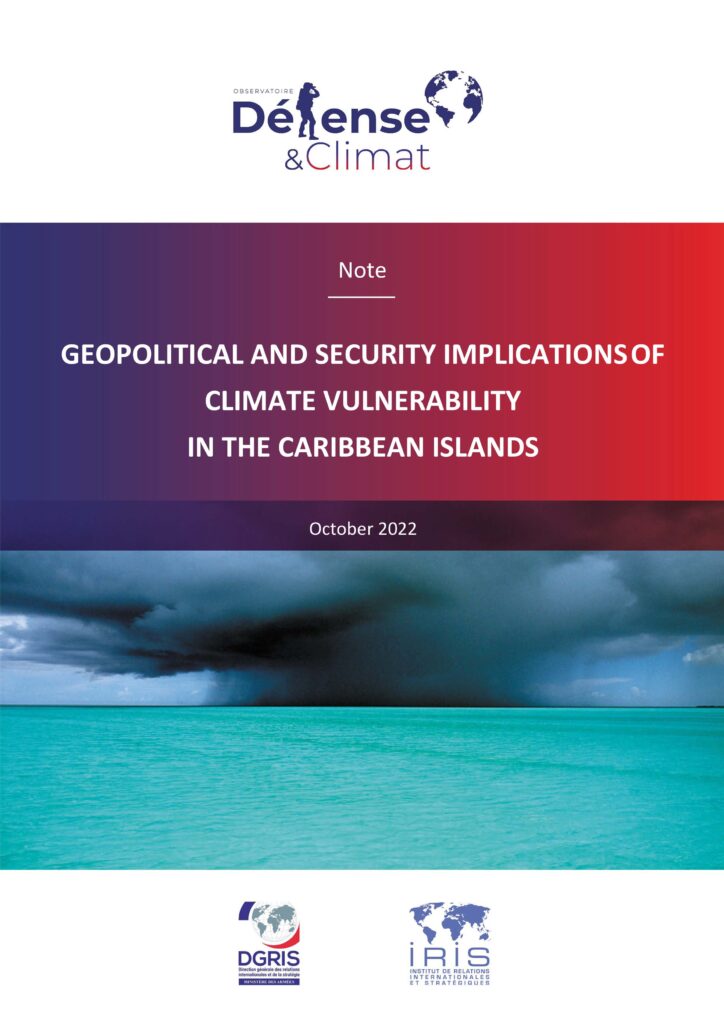Notes / Defence and Climate Observatory
10 November 2022
Geopolitical and security implications of Climate vulnerability in the Carribbean Islands

This brief addresses the current and future consequences of climate changes in the insular Caribbean, as well as their geopolitical and security implications. In this perspective, we focus our analysis on the Caribbean arc, traditionally subdivided into two groups: the Greater Antilles, stretching from Cuba in the northwest to Puerto Rico; and the Lesser Antilles, from the Virgin Islands to the islands of Trinidad and Tobago, which border the Venezuelan coastline further south. The region is therefore marked by the diversity of its geographical, political and cultural sub-sets, and by its integration into the vast Latin American and Caribbean region. It also has particular geological conditions, with the North Caribbean seismicity touching also Haiti, due to the meeting of the Caribbean and North American tectonic plates, separated by the Gonave microplate. This tropical region, already exposed to extreme weather conditions, is all the more vulnerable to the effects of climate changes1. This prompted the United Nation General Secretary, Antonio Guterres, to say at the opening of the CARICOM (Caribbean Community and Common Market) summit in July 2022: “The Caribbean is ‘ground zero’ for the global climate emergency” (Schneider, 2022, 4 July)…


